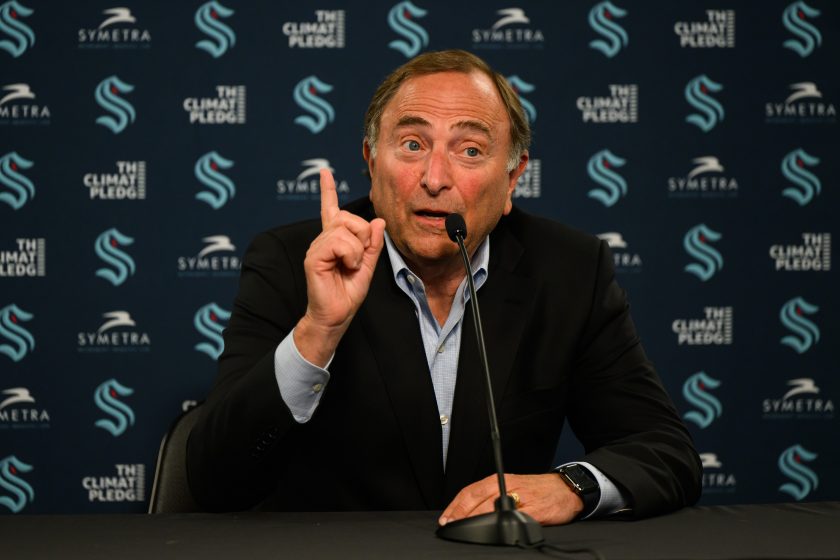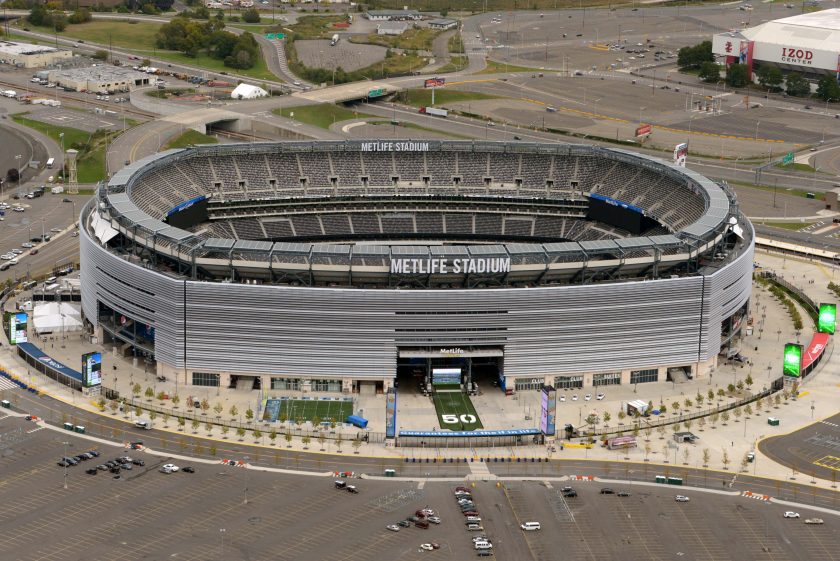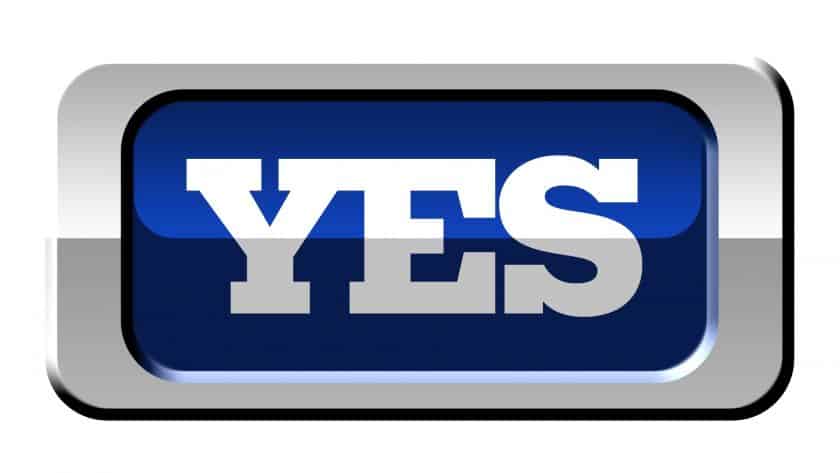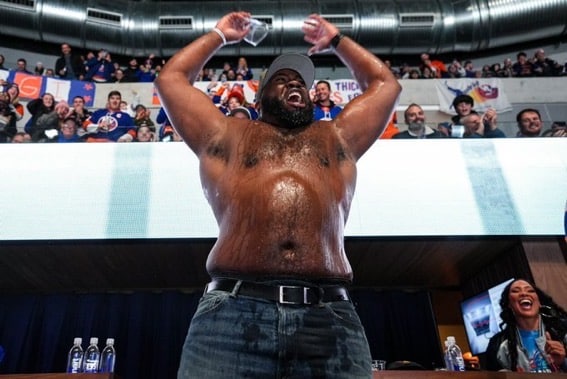New York Islanders: Breaking down Doug Weight’s strengths, weaknesses
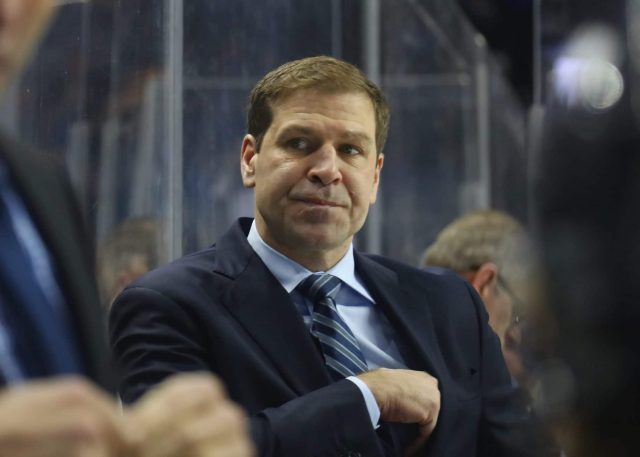
Doug Weight’s first full season as head coach of the New York Islanders has been filled with ups and downs. We take a closer look at what’s working—and what’s not.
The 2017-18 season is one of the most important the New York Islanders have played in years. John Tavares‘ contract is set to expire in June and there have been no reports that contract talks have begun yet. In all likelihood, those will probably be on hold until the end of the season. But head coach Doug Weight will ultimately be the man responsible for how things play out on the ice.
Compared to past Islanders coaches, Weight hasn’t been that bad. Don’t forget that the man who came before him, Jack Capuano, has the second-most wins in franchise history behind only the late, great Hall of Famer, Al Arbour.
One thing Weight can’t control is the personnel he is given. That’s on general manager Garth Snow, who has been criticized for failing to make a trade to fix the defense or securing the team’s future. Since Weight can only play the cards Snow gives him, the Isles head coach must shuffle the deck.
Let’s break down the strengths—and weaknesses—we’ve seen from him so far.
[sc name=”Islanders Center”]Strengths
Passion
Weight is one of those coaches that has a fire in him. His passion is an undying one and he will make sure the players don’t lose their passion either.
That, he brought with him directly from his playing days. Weight always seemed to play with a lot of heart and even wore the captain’s “C” in two cases: From 1999-01 with the Edmonton Oilers, and with the Islanders, from 2009 until he retired in 2011.
Relatability
It wasn’t so long ago that Weight was in his players’ shoes. He has played in the blowouts, had minimal sleep on a back-to-back and played through injuries as well. It’s the life of an everyday hockey player. Weight lived it recently and he’s not so disconnected from it like some other coaches are.
He can walk the younger guys through the motions and they can invest their trust in him. He’s been there before. He understands what they’re going through. He’s seen it all. That little bit of guidance can go a long way with a rookie or sophomore player.
Leadership
Weight is a leader. Despite the fact he hasn’t held many individuals accountable—except for Josh Ho-Sang—he leads his team into battle every night. It comes naturally to him and it’s why, In his 19-season career, he twice served as captain. From the 1999-00 season to the 2000-01 season, he was the captain of the Edmonton Oilers. From 2009-10 to 2010-11, he was the captain of an Isles team struggling to find their identity.
[sc name=”NHL Center”]
Weaknesses
Inability to adjust
Weight’s failure to mix things up among the bottom-six forward group is troubling. The depth scoring has been non-existent for the Isles in big moments this season. Instead of Jason Chimera or Brock Nelson skating around aimlessly for 15 minutes a night, put one on Tavares’ wing to change it up a bit. Maybe putting Nelson, who has one of the filthiest wrist shots on the team, on a line with one of the Islanders’ top playmakers could help him snap out of his season-long slump.
On defense, it is a little more complicated due to injuries. Perhaps a solution there is to simply continuously shuffle the pairings. Make everyone get used to playing with each other, regardless of who it is and how many minutes they get.
“Dougie blowout games”
This is a term has been thrown around by fans on Twitter as well as some reporters when referencing a game where no one shows up, including the coach. The team starts the game flat, falls into an early deficit and Weight fails to adjust. These losses can vary in score because it really depends on how good the opposition is on a given night.
Every team has bad nights, though. The troubling thought is that Weight doesn’t shake things up or put the players on notice in some way. Change goalies, lines, or bench someone for a shift or two. He should make sure guys don’t think lackadaisical play will be acceptable—ever. Perhaps then the Isles will be able to climb out of a three-goal deficit they dug themselves in the first period.
Admit mistakes
Finally, Weight and his staff need to re-evaluate the system they have in place. It is clearly useful for scoring. After all, they have scored the second-most goals in the NHL. Good offense aside, a strong two-way strategy wins championships.
Despite having the second-most goals for in the league, the goal differential is still in the negatives, which is on the coaching staff. It is up to them to make an on-the-fly adjustment and get younger defensemen to stop taking risks and improve their decision-making ability.
There are arguments to be made for either side, whether or not Weight is doing a good job in his first season as coach. But facts are facts, and the fact is that the Islanders sit in the basement of the Metropolitan Division with 55 points.
If he’s going to lead this team to the playoffs, he must work on his weaknesses—and fast—before it’s too late.
[sc name=”Islanders Link Next” link=”https://elitesportsny.com/2018/02/02/new-york-islanders-jon-ledecky-scott-malkin-absentee-landlords/” text=”Jon Ledecky, Scott Malkin Look Like Absentee Landlords” ]


